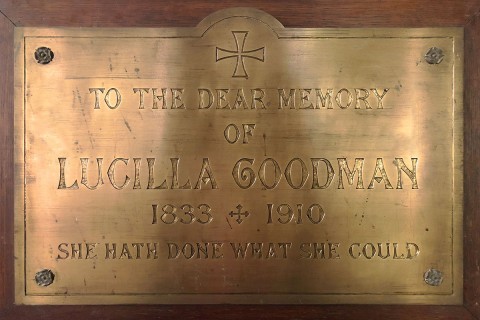Lucilla Goodman and other ordinary saints
Her epitaph, “She hath done what she could,” says a lot.

When a church sanctuary feels warm and intimate, and thoughtful people settle into its ancient pews, and candlelight bounces off the ecclesiastical-looking wallpaper, and the timber beams atop the stone walls smell 172 years old, it’s easy to nestle in and believe that a real encounter with God might occur.
When I stepped into Sunday worship a couple of years ago at the red-doored Grace Episcopal Church in Galena, Illinois, I immediately felt surrounded. Not just by worshipers in front of me and a small choir squeezed behind the pews in back of me, but by a host of congregational saints whose names adorned plaques bolted to the walls.
I sat directly beneath one massive bronze slab dedicated to “The dear memory of Lucilla Goodman—1833–1910—She hath done what she could.” My mind flipped between wondering how badly I’d be maimed if Lucilla fell off that wall and wondering what her epitaph was meant to suggest—each consideration presenting me with its own sort of encounter with God.




